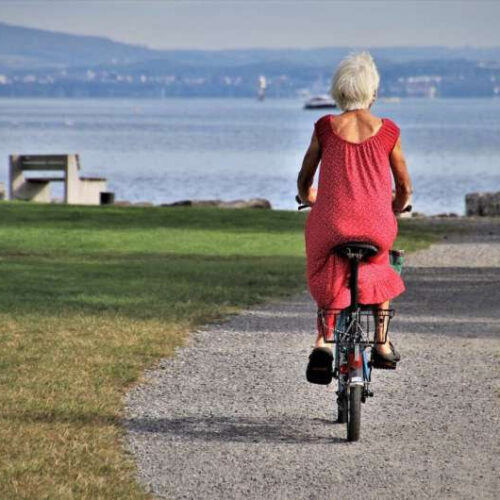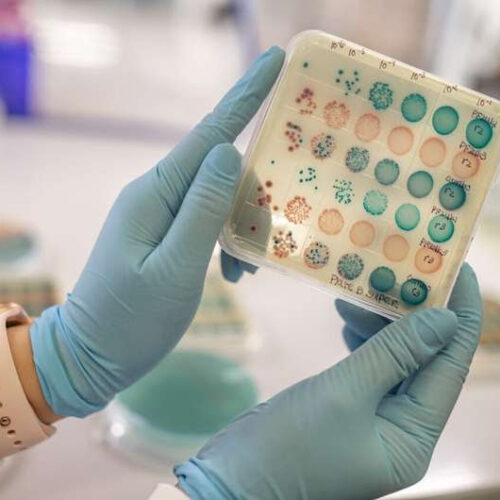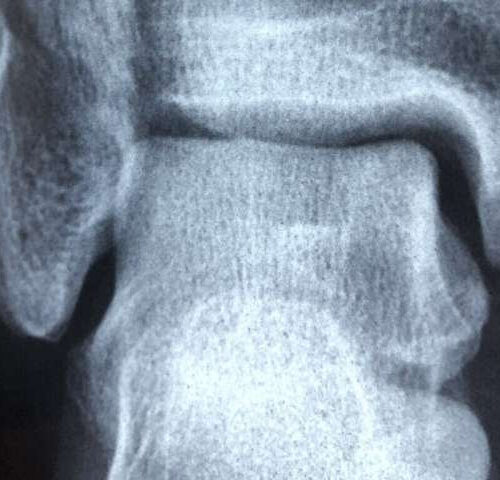by Betty Zou, University of Toronto Credit: CC0 Public Domain A University of Toronto study is providing reassuring evidence about the consumption of soy foods in women who are postmenopausal. The analysis of 40 randomized controlled trials in over 3,000 participants found that estrogen-like compounds in soy had no effect on key markers of estrogen-related cancers,...
Tag: <span>postmenopausal women</span>
Comprehensive review offers roadmap for doctors to evaluate, treat dyspareunia in postmenopausal women
by Northwestern University Feinberg School of Medicine Credit: Pixabay/CC0 Public Domain Between 13% and 84% of postmenopausal women experience dyspareunia—vaginal pain during sex—but the condition is rarely evaluated or treated despite the availability of safe and effective therapies. With life expectancy increasing and the functional health of older adults improving, the identification and treatment of painful...
Estrogen receptor in the heart found to regulate obesity in postmenopausal women
by La Trobe University Credit: Pixabay/CC0 Public Domain Estrogen is known to play an important role in the protection of women’s hearts, but once women are postmenopausal and estrogen levels drop, they are at an increased risk of a number of diseases and conditions, including heart disease, obesity and diabetes. Published in Nature Cardiovascular Research, the study...
In postmenopausal women, who is more prone to recurrent UTIs? Bladder bacteria may be an indicator
by Phil Roth, University of Texas at Dallas In Dr. Nicole De Nisco’s lab, students monitor the growth of various bacteria. Credit: University of Texas at Dallas Researchers at The University of Texas at Dallas have identified specific bacteria in the bladder that may indicate which postmenopausal women are more susceptible to recurrent urinary tract...
CAN CBD TREAT POSTMENOPAUSAL WOMEN?
Cannabidiol (CBD) is already used to treat conditions such as chronic pain, inflammation, migraines, epilepsy, autoimmune diseases, depression, and anxiety. In the study in Frontiers in Pharmacology, the researchers report that when they fed estrogen-deficient mice CBD, a non-intoxicating compound extracted from hemp, the mice showed marked improvement in several areas. Their bloodstreams more readily disposed of...
Sleep apnea may lead to increased joint pain in postmenopausal women
THE NORTH AMERICAN MENOPAUSE SOCIETY (NAMS) CLEVELAND, Ohio (March 2, 2022)—The menopause transition is associated with several health issues. The incidence of both sleep apnea and joint pain, for example, are higher in postmenopausal women. A new study aimed to investigate the association between various physical and psychological symptoms common during the menopause transition with...
More than half of postmenopausal women experience female pattern hair loss
by The North American Menopause Society Credit: Laura Tiitto/public domain Both men and women are more likely to lose their hair with age. Women also have the added risk associated with declines in estrogen levels during the menopause transition. A new study sought to identify the prevalence of female pattern hair loss (FPHL), hair characteristics,...
One bone fracture increases risk for subsequent breaks in postmenopausal women
by University of California, Los Angeles Credit: CC0 Public Domain Current guidelines for managing osteoporosis specifically call out hip or spine fractures for increasing the risk for subsequent bone breaks. But a new UCLA-led study suggests that fractures in the arm, wrist, leg and other parts of the body should also set off alarm bells. A...
Total knee replacement may be more painful for vitamin-D deficient postmenopausal women
THE NORTH AMERICAN MENOPAUSE SOCIETY (NAMS) CLEVELAND, Ohio (May 5, 2021)–Vitamin D is a critical part of a healthy diet. Among other benefits, it has been shown to protect against bone disease and maintain soft tissue health. A new study suggests that it may also play a role in the degree of postoperative pain postmenopausal...
Hormone therapy shown to reduce effects of nocturia in postmenopausal women
THE NORTH AMERICAN MENOPAUSE SOCIETY (NAMS) CLEVELAND, Ohio (March 17, 2021)–As women age, they are more likely to wake up in the middle of the night to pass urine. The loss of estrogen during the menopause transition accelerates this problem, which is known as nocturia. A new study evaluated the effectiveness of different hormone therapies...





